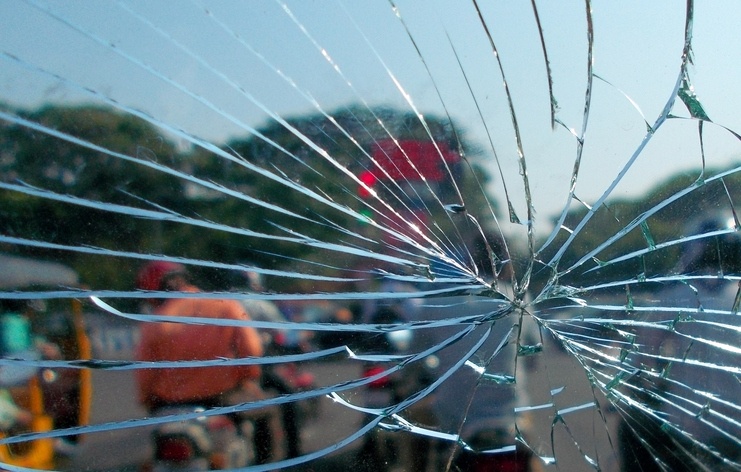Dangers of Driving with a Cracked Windshield
Cracks and chips in a windshield can be annoying, especially if they’re right in your field of view, but they can easily be forgotten if they’re not. Unfortunately, they can be more than just an inconvenience. Chips and cracks can be a major safety hazard, and in some states, they’re illegal.
What causes windshield cracks and chips?
Even if you store your vehicle in a garage and maintain it well, it’s likely that you’ll find small cracks or chips in your windshield.
Driving on any road, but especially a gravel road, means that your vehicle and the vehicles around you are spinning gravel and other debris into the air as they drive. Keeping a safe distance from the car in front of you can help lower the risk of gravel chipping your windshield, but its still a possibility.
Construction vehicles often carry more dirt and debris than other vehicles, and especially on the highway, anything that isn’t tightly attached is likely to blow off and hit another vehicle. If you’re in the right spot at the wrong time, it could crack your windshield, especially at high speeds.
Things like accidents, severe weather like hail or high heat, changes in temperature or pressure, or improper windshield installation can cause chips or cracks too.
Why are cracks and chips in the windshield dangerous?
One of the most obvious dangers of a chip or crack in the windshield is that it can obstruct the driver’s view! If you leave it alone, it’ll worsen over time, making it harder for the driver to see.
A windshield helps to protect the driver from wind and debris while providing a wide view. It also helps in a collision by redistributing the force of impact around the outside of the vehicle and away from any passengers, and it helps to hold the airbag system in place and function correctly. It can help keep the passengers inside the vehicle during an accident – especially during a rollover accident.
Cracks and chips in the windshield can affect the way the windshield functions in an accident, and leave the passengers more vulnerable to serious injury.
How do I repair a windshield?
Fixing your windshield doesn’t have to cost an arm and a leg – especially if it can be repaired instead of replaced. Generally, chips and cracks less than the size of a quarter can be repaired, but larger breaks and cracks cannot. Keep in mind that the longer you wait to repair a small chip, the more likely it is to spread across your windshield and grow too large to repair.
A repair technician will fill in a crack so that it is less noticeable, but much less so. Most importantly, a repaired windshield is much more structurally sound than one with an open chip or crack!

